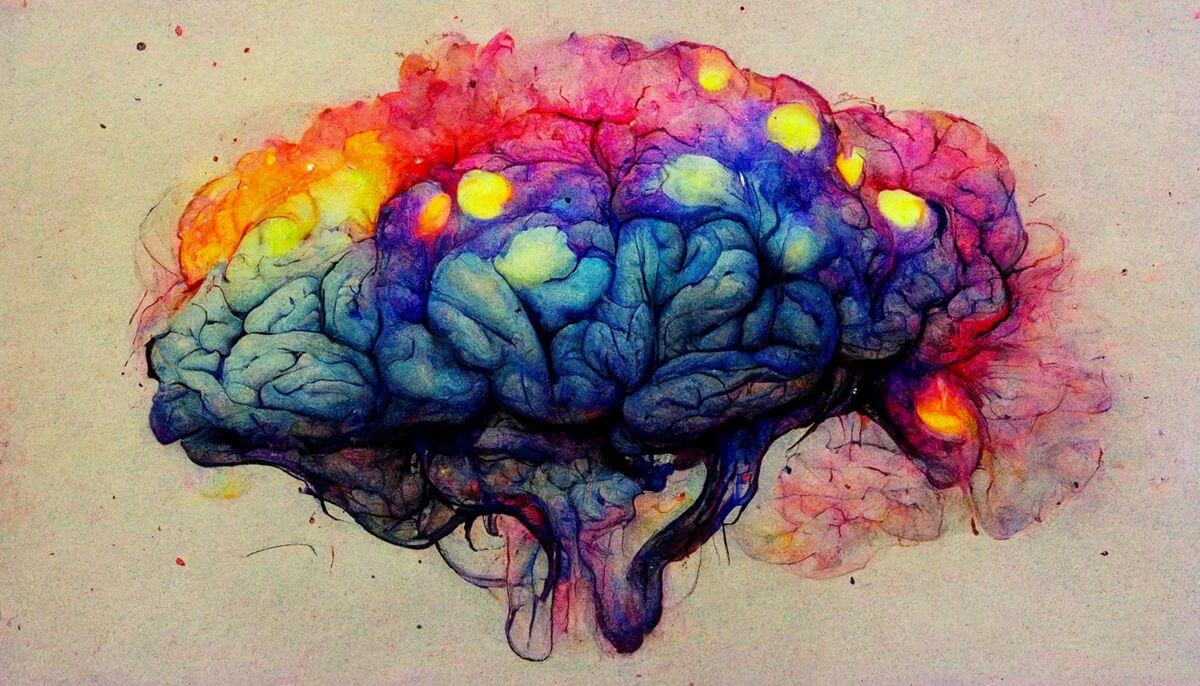Putting the Pieces Together: Internal Family Systems (IFS) and Psychedelic Healing

Internal Family Systems therapy is a respectful and non-pathologizing style of psychotherapy that offers a unique way of navigating our inner landscapes. By recognizing that we all have different parts or sub-personalities, we can get to know the family within and harness our capacity to self-heal. When used in conjunction with psychedelics, the IFS framework offers us a new way to access our unique Self Energy and heal parts burdened by past traumas.
When was the last time you experienced an inner dialogue with yourself? Perhaps you were pondering an imminent decision and weighing your options.
Reflecting on this internal conversation, you may hear distinct voices arise to offer their input only to fall away to opposing thoughts.
The inner chatter of pros and cons swells in your mind; you give way to the volley of— this… no this.
Observe the voices, and you may notice a difference in tone, emotion, and motivation. Whatever this inner dialogue may look like for you, you likely notice different aspects of yourself jumping in with their story.
In IFS therapy terms, these are “parts.”
What is IFS therapy?
IFS stands for Internal Family Systems, which is pretty much what it sounds like. We have all these different internal parts that, together, come to resemble a family.
Dick Schwartz, the founder of IFS, originally practiced family therapy. Realizing these familial systems also exist within our psyche, Schwartz took what he knew about family dynamics and focused it inward. That’s how this form of therapy found its origins in the late 1980s.
In our external families, members tend to have roles, whether conscious or not.
“Traumas and detachment injuries that happen in our families tend to force parts out of their naturally valuable states and into extreme roles that they don’t like but they feel like they need to do,” says Schwartz. “The analogy I like to make is a family with young kids. Say something really bad happens in the family. Sometimes, a kid will take on parentified roles. Some kids get shut down and locked up in a metaphorical way. Healing involves helping them out of these roles, helping them get along with each other, and restoring trust in the leadership of the system.”
This is the essence of IFS therapy. Looking at the analogy Schwartz puts forward, we can imagine a traumatic event altering our inner family dynamics in a similar way. Naturally valuable parts within us take on roles that they don’t like but feel obligated to do. Some of these roles are protective in nature, while other parts are exiled and hidden away to prevent their pain from overwhelming the system.
IFS therapy brings together two paradigms: the plural mind and systems thinking.
Getting to Know Your Parts
“It’s the natural state of the mind to be in parts.”
– Richard Schwartz
Everybody has parts, and the presence of these parts is not a pathology. Actually, getting to know them can be quite empowering. Schwartz describes parts as sacred inner beings that use their unique, valuable qualities to help us.
We know that when traumatic events occur, parts may take on destructive roles that feel necessary at the time of the event. Some parts hold wounds, or burdens, and IFS refers to these parts as “exiles.” They tend to be young and are often stuck in the past, living as if the event is still happening or is looming.
Other parts function to protect these vulnerable parts and are aptly named “protectors.” These protectors fall into two camps, Managers and Firefighters. Managers typically run day-to-day life, working to prevent wounds from getting triggered. They take their job seriously, and in their effort to avoid pain, might strive to be perfect in order to maintain control. They may appease others or avoid conflict. According to Frank Anderson, IFS and trauma expert, these parts are often exhausted when you ask them how they feel, but they nevertheless work relentlessly hard.
Protective parts that stop the pain after wounds are triggered are known as firefighters. Their “put out the fire” response can be extreme. Examples may include binging, purging, cutting, substance use, suicidal thoughts, and dissociating.
Our Mind is a Delicate Ecosystem
In the 1970s, the environmental movement inspired family therapists to consider how systems theory might apply to family dynamics. They realized altering one element in the family system has a ripple effect (as in nature), introducing changes, however subtle, to other parts of the system. Systems reject attempts to interrupt their preferred state of homeostasis, especially if the attempts are not sensitive to the system’s needs.
From the IFS perspective, protective parts may become resistant if they sense a threat to the delicate ecology within. Because they are carefully guarding a territory, they deserve to be understood and appreciated before any attempts to approach vulnerable parts. For this reason, the client and therapist must approach the protectors with respect and compassion, suggesting to them that they can be liberated from their roles through this respectful style of parts work (more on this later).
“A part is not going to give up its role until it doesn’t need to do that anymore.”
– Frank Anderson

Accessing Self Energy
IFS therapy recognizes that people have all the internal resources already. The Self is inherently strong.
Schwartz defines Self as a state we all can access that has not been damaged by traumas. It is our always-present version of ourselves. The Self understands what each inner part needs and attunes to these needs. While parts may have an agenda, the Self does not.
“Self is not on or off, there or absent – it’s always there, waiting for parts to step aside and for us to be in it.”
– Natasha Anand Boojihawon
The Self contains amazing healing qualities, and it is the embodiment of what Schwartz calls the 8 C’s of Self-Leadership:
- Calmness
- Clarity
- Curiosity
- Compassion
- Confidence
- Courage
- Creativity
- Connectedness
To show what this might look like in action, here is a personal example of how I can use Self-energy to connect and communicate with a part.
When I am faced with a big stressor, I may sense a familiar tightness taking form in my belly. This sensation can feel to me as if a black hole has opened up near my stomach. It pulls me in. My body contracts, and I find myself hunched, made smaller. My breath feels far away.
But I recognize this feeling. One of my anxious parts is yelling out for me. This is too much.
Rather than turning away from the discomfort, I can gently attune to this part, connecting with her in my body. Accessing Self-energy, I’m curious about this interjection. What is it about this experience that is too much? What do you fear might happen? Calmly, I ask what else she would like to share with me.
I sense a wave of compassion move throughout my body as I listen to this part’s fears. I respectfully respond to her concerns, and if necessary, promise this part that I’ll revisit later if needed (and keep this promise, always). This communication provides so much clarity as to what is happening internally. Acting from a place of Self-leadership enables me to remain present in the moment and feel more connected to life around me.
There will be times, like in the example above, when we feel overtaken or absorbed by a part. This is known as “blending.” However, we can develop the ability to recognize when we are not in Self and learn how to work with our parts to unblend.
As Anderson says, we can learn to speak for, not from, our parts.
What does an IFS session look like?
IFS therapy has 4 primary goals.
- Permanent healing of wounds
- Releasing parts from their extreme roles (but not getting rid of them)
- Restoring parts’ trust in Self-leadership
- Helping parts integrate back into the system
With the presence of Self-energy in both the client and the therapist, the unburdening process can begin for those exiled parts of us stuck in time. Again, permission from the protector parts is crucial before undertaking this process.
Once permission has been granted, the client can witness what this part wants to show the Self. The Self can then attune to the part’s needs and be with them in the way they needed at the time of the difficult memory.
Witnessing alone isn’t always enough, however. Shamanic systems have practices for helping retrieve lost fragments of ourselves through soul retrieval. In IFS work, the retrieval process involves getting the part out of its unsafe surroundings and taking them to a new place that feels safer. There, the Self invites the part to unload any extreme thoughts, feelings, and beliefs accrued from the trauma by releasing them to the elements (wind, fire, rain, etc.).
The part can then welcome in new qualities, such as those that describe Self-energy. The protectors are invited to witness this part healing, which helps assure them that they are free to find a new healthier role in the system.
This process is evidence-based and is known to lead to immense healing. But, like most transformational processes, it requires dedication to the integration process. Following the guided session, a person should check in daily with this part for 3-4 weeks. This reinforces the neural networks and contributes to permanent healing. In this integration period, one should also follow up with the protectors. How are they doing in their new role? Do they have additional work to do? How can you support them?

How can Psychedelics Help?
Internal Family Systems therapy can be a valuable tool for a person who is in a psychedelic journey. It offers a unique lens that can be helpful in understanding the processes that unfold within the journey, especially a challenging one.
At The Plant Spirit Summit 2022, Liam Farquhar shared that psychedelics such as peyote and MDMA can help a person access more Self-energy. This enables deeper compassion and enhanced clarity when getting to know the hurting parts of the system.
Currently, this framework is being used in the MAPS-sponsored MDMA clinical trials for the treatment of PTSD. Much like the origins of IFS therapy, it arose spontaneously in these sessions. Michael Mithoefer, a psychiatrist and Clinical Investigator at MAPS, notes that in 81% of the MDMA-assisted sessions, the participant spontaneously brought up awareness of different parts of themselves.9
Other aspects of IFS therapy seem to unfold organically in these sessions too. Without direct guidance from the therapists, participants often experience unblending from parts, increased understanding and respect for protectors, and the witnessing and unburdening of past traumas.
“One way to describe the effects of MDMA is that it facilitates access to a high level of Self-energy, and thereby brings courage to face a painful experience. It provides clarity and compassion for one’s own parts and the burdens they have carried.”
– Michael Mithoefer

The IFS framework is also being researched with other psychedelic medicines such as psilocybin and ketamine.
Elizabeth Call, a therapist trained in MDMA-assisted psychotherapy and Ketamine Assisted Psychotherapy (KAP), points out that Ketamine has the ability to help disarm protectors. “KAP allows protectors to soften in beneficial ways so that psychotherapy can unfold.”
IFS as a Psychedelic Preparation and Integration Tool
While psychedelic medicines can be life-changing, they are no silver bullet. The most powerful transformational work is accomplished during the integration period following the experience. The IFS framework can be a valuable tool during this time because it, too, is all about integrating and self-organizing.
Incorporating IFS into the psychedelic integration process, including preparation and aftercare, might include mapping and connecting with parts as well as improving access to Self. The more we can practice the IFS process in the preparation phase, the more we can access it during difficult journeys.
Natasha Ananad Boojihawon, IFS practitioner and Guest Faculty at The Plant Spirit School, recommends feeling into the fears that some parts may hold around the journey. “If the client is aware of the different parts that may (or tend to) get activated in the journey, like fearful or anxious parts, they can get in touch with them and self-regulate.”
Once again, it’s important to get permission from protector parts, otherwise, polarizations and disagreements between parts may amplify. In some cases, the protectors might even block psychedelic effects. Robert Falconer, an IFS consultant and practitioner, notes that if protectors felt pushed aside by the medicine, they might come back angry, nervous, or skeptical after the journey.5
Following the psychedelic session, exercises such as journaling, drawing, meditating, or taking inventory of your internal family, may help you process what came up in the journey. The IFS framework offers a way to conceptualize and make sense of your experience.
“This is the critical role of integration: to recalibrate the ego with the Self, to witness and guide the vulnerable parts that need care, and to ground potentially expansive visions into a genuine path of tangible healing.”
– Simon Yugler
Working with Clients
“This is an embodied experience and one can only take their client to the depths that they have been themselves. Personal experience with the model is key.”
– Natasha Anand Boojihawon
Therapists or coaches doing IFS work with clients need to do their own inner work, taking full responsibility for their parts. This is absolutely the case for psychedelic facilitators and integration practitioners using this framework as well. There’s a felt sense in the body when the facilitator/therapist is in Self, and when parts show up, this may be noticed in certain areas of the body too. Schwartz checks in with himself by asking questions like: Is my heart open? Is Self-energy flowing through my body?
Another way to check in with oneself is by embodying the 5 P’s of therapist attunement:
- Patience
- Presence
- Perspective
- Persistence
- Playfulness
They need to practice patience, progressing only at a speed that is respectful to the parts of the client’s system. In moments that require persistence, an IFS-informed practitioner can embody this without being pushy. This may look like taking a pause and returning in a subsequent session.
Going back to the systems theory of this approach, IFS practitioners need to be sensitive to the context in which behaviors occur and not try to override, control, or banish protective parts. Otherwise, parts may feel the need to fight harder in order to protect the vulnerable parts. The added perspective of knowing parts have good intent can improve communication with them.
Presence is a key component as well. The healer needs to stay present in Self, embodying the 8 C’s. Anderson notes, “If your client cannot access Self, you are the Self of the system. That’s why it is important to get your parts out of the way.” When he works with clients and senses parts coming up, he will close his eyes and recalibrate. “I tell the client to call me out. It’s so normalizing.” Incorporating an appropriate level of playfulness can be quite normalizing as well.
Psychedelic facilitators and integration providers must embody the 5 P’s of therapist attunement to help clients feel supported in a safe setting. Oftentimes, memories come up that have long been exiled, and these need to be held with care and compassion to prevent and reduce harm.
Know When to Refer to a Therapist
Boojihawon notes that it is a coach’s job to help clients identify fears, burdened energy and memories, and other challenges. Just as importantly, however, coaches should know when to refer on. “There are some occasions when some of this stuff really needs a trained therapist to work on. It’s about you understanding what you’re comfortable and capable and confident to work with… and knowing when you’re not able to take that client any further.”
Want to learn how Internal Family Systems and sacred plant medicines can help you create stability, peace, and radical presence in your life as well as the lives of your clients? Whether you want to be a therapist, sitter, integration coach, or facilitator, this workshop will help you develop your personal IFS toolkit and give you the opportunity to practice the tools in a safe and easy way. Save your seat here.
In Summary
The Internal Family Systems framework can provide a respectful, non-pathologizing approach to understanding our psyche. Connecting and relating to our many unique parts can help us reorganize the system and improve our ability to access Self. In some cases, psychedelic medicine has the potential to further enhance our capacity to deeply relate to these parts and tap into our inner healing intelligence. In both IFS therapy and work with psychedelics and plant medicine, however, it is the integration process that deeply solidifies this healing.
Disclaimer: If you want to provide IFS therapy, it is recommended you do Level One training at a minimum. Potential harm may occur when working with exiles without the proper training.
References
- Depth Psychology & IFS for Psychedelic Integration with Simon Yugler. (2021, September 7). The Psychedelic Entrepreneur Podcast. https://open.spotify.com/episode/1hGWMupN2kdZqCQ8sTLudo
- Essential IFS Communication Framework for Integration with Natasha Anand Boojihawon (2022). The Plant Spirit School Psychedelic Integration Coach Certification Program. https://plantspiritschool.com/
- How Could Internal Family Systems Therapy and Psychedelics Work Together? (2021, April 7). Psychedelics Today. https://psychedelicstoday.com/2021/04/07/internal-family-systems-ifs-therapy-and-psychedelics-explainer/
- IFS for Trauma, Anxiety, Depression & Addiction | PESI.com. (n.d.). Retrieved September 25, 2022, from https://catalog.pesi.com/sales/bh_c_001178_ifs_organic-11587
- Integrating Internal Family Systems and Psychedelic Therapy with Robert Falconer. Adventures Through the Mind Podcast. https://open.spotify.com/episode/6M9LKf9pvlr8HuYaB26vuv?si=72aeU0-9RumWHlFuqns_Og
- Integrating Psychedelic Experiences Utilizing the Internal Family Systems Therapeutic Model. (2020). Retrieved September 25, 2022, from https://www.researchgate.net/publication/343833184_Integrating_Psychedelic_Experiences_Utilizing_the_Internal_Family_Systems_Therapeutic_Mode
- Ketamine Assisted Psychotherapy. (n.d.). Retrieved September 25, 2022, from https://drelizabethcall.com/ketamine-assisted-psychotherapy.html
- MDMA Assisted Therapy with Michael Mithoefer. (2020, December 3). https://open.spotify.com/episode/3tK3njeLeanZrr216hufGp
- Mithoefer, M. C. (2016). A Manual for MDMA-Assisted Psychotherapy in the Treatment of Posttraumatic Stress Disorder. 75.
- Morgan, N. L., Radecka, P., and de Koning, C (2021). Internal Family Systems: A Therapeutic Model for Each Stage of the Psychedelic Experience. Journal of Psychedelic Psychiatry (Volume 3 Issue 4). https://www.journalofpsychedelicpsychiatry.org/_files/ugd/e07c59_4381e1fc26f44ceb9587fa976f1559c4.pdf?index=true
- Rebranding Trauma with Liam Farquhar (2022). Plant Spirit Summit. https://plantspiritsummit.com/
- Richard C. Schwartz, Ph.D (Internal Family Systems): IFS & Psychedelic-Assisted Therapy. (2020, June 9). https://open.spotify.com/episode/2Numb88f3xcOr6rWYozICz
- Schwartz, R.C. & Sweezy, M. (2020). Internal Family Systems Therapy (2nd ed.). New York NY: Guilford Press.
- Whitfield, H. J. (2021). A Spectrum of Selves Reinforced in Multilevel Coherence: A Contextual Behavioural Response to the Challenges of Psychedelic-Assisted Therapy Development. Frontiers in Psychiatry, 12, 727572. https://doi.org/10.3389/fpsyt.2021.727572
- Yugler, S. Working with Internal Family Systems (IFS) Therapy and Psychedelics: Everything You Need to Know. Psychedelics Today. https://psychedelicstoday.com/2021/04/07/internal-family-systems-ifs-therapy-and-psychedelics-explainer/
